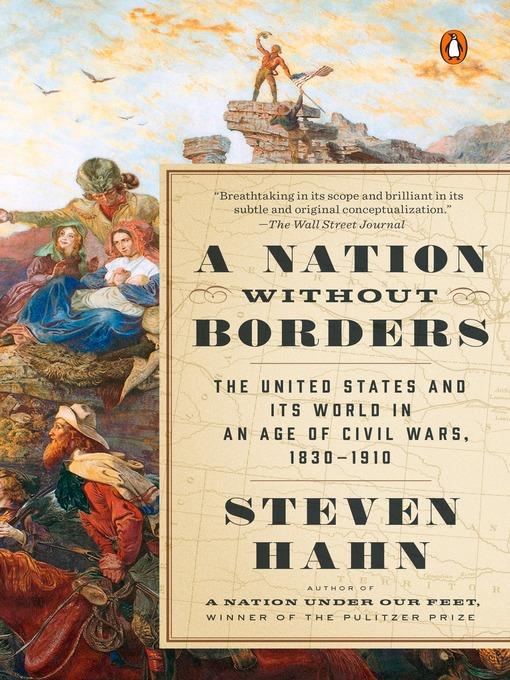
A Nation Without Borders
The United States and Its World in an Age of Civil Wars, 1830-1910
کتاب های مرتبط
- اطلاعات
- نقد و بررسی
- دیدگاه کاربران
نقد و بررسی

August 29, 2016
This hefty and comprehensive survey (the latest volume in Eric Foner’s Penguin History of the United States series) from Hahn, a professor of history at NYU and Pulitzer-winner for A Nation Under Our Feet, analyzes 80 years of American history, examining the massive social, political, and economic changes that occurred between 1830 and 1910. Hahn is an expert on the emergence of the U.S. as a world power, and he offers a fresh take on the years he covers, with some of his departures important, if not unprecedented. He portrays the U.S. as an imperial nation from its beginning. Native Americans and African-Americans play a large role in his narrative, which is centered on the Mississippi Valley, not the South or North. He emphasizes the development of capitalistic enterprise and commerce as well as the nation’s place on the North American continent and in the world. Given Hahn’s unimpeachable body of knowledge, readers can be confident that they’re getting the most current understanding of the history of the U.S. This is a scholar’s work written with the author’s eye on other scholars, but it’s one that bears reading by all serious students of the American past.

A Pulitzer Prize-winning historian reveals America's evolution into nationhood.In a revisionist view of 19th-century America, Hahn (History/New York Univ.; The Political Worlds of Slavery and Freedom, 2009, etc.) examines eight decades of politics and culture punctuated by the 1860s conflict he calls the War of Rebellion. That war, he writes, was one among many other rebellions involving Indians, abolitionists, slaves, and disgruntled political groups that questioned federal authority. Hahn's expansive, authoritative history synthesizes published works that comprise his 50-page bibliography and draws as well upon archival material. He mounts a persuasive argument that nationhood was not a concept shared by the many disparate states and territories, nor by its politicians. Although the Colonies broke from British imperialism, empire, not nationhood, served as a compelling economic and political model, as the country stretched west to California and south to Mexico, with tentacles into the Pacific and Indian oceans. In the Caribbean basin, Cuba was coveted for annexation. Hahn identifies roiling political tensions between the two major parties. Whigs, who evolved into Republicans and maintained strongest support in the Northeast, Midwest, and urban South, focused on developing the domestic economy and favored the exercise of federal power. Democrats, supported by Southern slaveholders, "stood for supremacy of state and local authority" and favored "aggressive geographical expansionism." Indeed, Hahn says that the political identity of the South "developed alongside theories of empowerment that focused on states and households." The author details the "costliest, most divisive, and most politically vexing" war with Mexico that resulted in the acquisition of Texas and the dubious purchase of the Louisiana Territory, which Thomas Jefferson had no constitutional authority to buy. Abraham Lincoln dared to articulate the "language of nation" at a time when states had affinity, at most, to a region. Hahn's prose is sometimes burdened by overly long, clause-laden sentences, but his first-rate scholarship will appeal to knowledgeable readers. A compelling examination of the long, divisive road to America's emergence, in 1919, as "the most formidable power in the world." COPYRIGHT(1) Kirkus Reviews, ALL RIGHTS RESERVED.

June 1, 2016
Pulitzer Prize-winning historian Hahn ("A Nation Under Our Feet") here offers a different view of 19th-century America, starting and ending in Mexico, taking an internationalist perspective, arguing against traditional views of sectionalism in favor of Northeast-Mississippi Valley conflict, and highlighting numerous antistate rebellions and the late-century "reconstructions" that laid the groundwork for the 20th century. The author's first trade (vs. academic) publication; bound to stir argument.
Copyright 2016 Library Journal, LLC Used with permission.

























دیدگاه کاربران